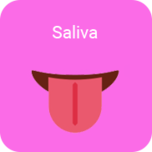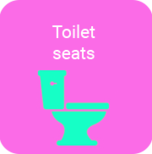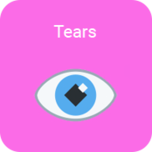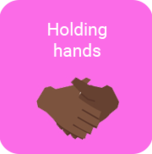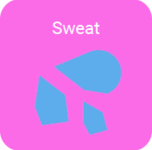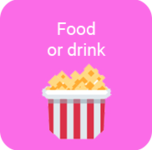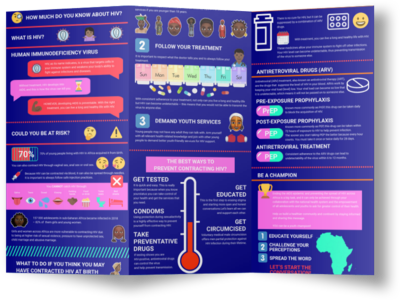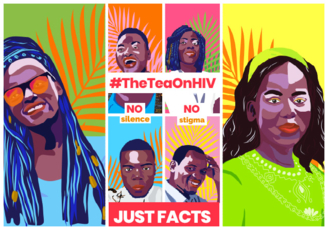The tea on HIV
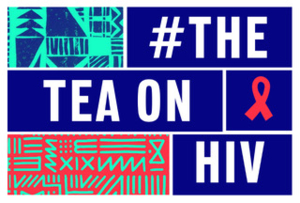
NO SILENCE
NO STIGMA JUST FACTS.
Sharing #TheTeaOnHIV is all about sharing the truth around HIV and empowering each other to have more open and honest conversations about it. 89% of adolescents living with HIV live in Africa.
This is a problem but we have the power to change this narrative. We can work together to ensure that everyone has access to youth-friendly care and support and stop new HIV infections once and for all. So, let's end the silence, get informed and start the conversation.???
Take our quiz now!
You may be surprised what you learn...

Let’s get the facts straight.
Human immunodeficiency virus



adolescents in sub-Saharan Africa became infected in 2018, 82% of them girls and young women.
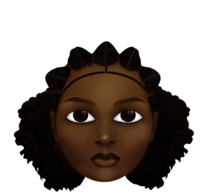
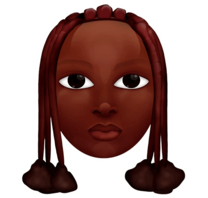
Girls and women across Africa are more vulnerable to contracting HIV due to being at higher risk of sexual violence, pressure to have unprotected sex, child marriage and abusive marriage.
1) Speak to someone
It’s super important to find someone whom you can speak to for support. In some countries across Africa, you must be taken by a parent to access services if you are younger than 18 years.
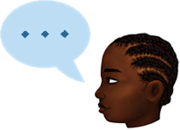
2) Follow your treatment
It is important to respect what the doctor tells you and to always follow your treatment.
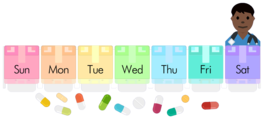
3) Demand youth services
Young people may not have any adult they can talk with. Arm yourself
with all relevant health-related knowledge and join with other young
people to demand better youth-friendly services for HIV support.

The details and tips that you
want to know.
CONDOMS (male and female)
- When used correctly, condoms are a great way to protect yourself from HIV, sexually transmitted illnesses and pregnancy too!
- You must only ever wear ONE condom between you and your partner as wearing two or more can cause it to break which puts you at risk.
VOLUNTARY MEDICAL MALE CIRCUMCISION (VMMC)
- VMMC can reduce sexual HIV transmission (female-to-male) by 60%! BUT it is still important to always use a condom during sexual activity.
VMMC facts
- One example as to why VMMC is recommended is that the foreskin is prone to tearing and bleeding during intercourse which makes it easier for HIV to enter the bloodstream.
- You must wait until your VMMC has completely healed before participating in sexual activity as you are at greater risk of contracting HIV whilst healing.
It is important that female genital mutilation
(FGM) is not be compared to VMMC. FGM does not protect against HIV and has no health benefits.

Open discussions about your status
- Speak openly with people you trust, and if you are in a relationship encourage your partner to get tested. This allows both of you to take the right precautions if necessary
Use of antiretrovirals to prevent hiv infection PrEP (before hiv exposure)
- PrEP is a course of drugs to be taken by HIV negative people to protect them from HIV.
- It stops HIV from replicating in your body and if taken correctly can prevent you from contracting HIV!
- You must take an HIV test before taking PrEP to make sure that you are HIV negative.
Should I use PrEP? It is is a good option if you are in a continuous sexual relationship with a partner that is HIV positive.
PEP
After HIV exposure. Emergency Only!
- Sometimes even when we try to be safe, we can be exposed to HIV.
- PEP works best when taken within 24 hours of exposure to HIV and cannot be taken more than 72 hours after exposure.
- It must be taken for four weeks at the same time everyday and you can get it from health clinics and doctors.
Availability and cost of drugs depends on where you are.
Who needs PEP? people who work with needles or have surgical injuries, are sexually exposed to HIV which is common among young people, or have experienced sexual assault.
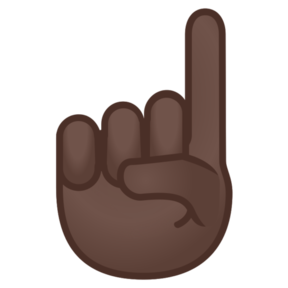
Symptoms and testing (male and female)
- Most people do not get any symptoms, which is why you must get tested to know your status.
- Tests are easy, confidential, and nothing to fear, it is the best way to take full control of your health and get the services you may need!
How do you get tested?
Blood or oral tests - option 1
- HIV can be diagnosed through rapid diagnostic tests that provide same-day results. The test is conducted by a qualified and validated health worker at a community centre or clinic.
- They will either take a blood sample by pricking your finger with a lancet to get a spot of blood or a small sample from your arm, and an oral test by wiping a swab inside your mouth along your gums to get a saliva sample. Young people can also use HIV self-tests to test themselves.
- To find your nearest test provider search for "HIV testing" and your location or ask a healthcare professional.

How do you get tested?
Self-testing - option 2
- Self-testing is a screening test so if your result is positive your diagnosis must be confirmed by a health worker.
- Self-testing kits are not available everywhere but can be found in health facilities and online.
- It’s quick and easy! You can take a blood sample via the pricking technique mentioned above OR collect a sample of saliva via the swab technique mentioned above. You can post some self-testing kits to a lab (results can take a few weeks) and others can provide a rapid results (approximately 30 minutes).
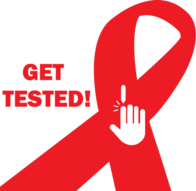
(ART) Antiretroviral treatment
- ART is a combination of ARVs that work to stop HIV from replicating itself in your body.
- ART keeps the amount of HIV in your body low (your viral load) allowing your immune system to be strong.
- If you follow ART correctly you can achieve an UNDETECTABLE status which means HIV levels are so low (low viral load) that it cannot be transmitted and does not affect your health!
FACT!
There is no transmission of the HIV virus among People living with HIV (PLHIV) with a suppressed viral load.
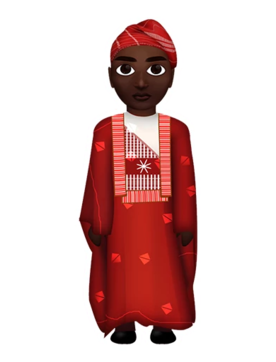
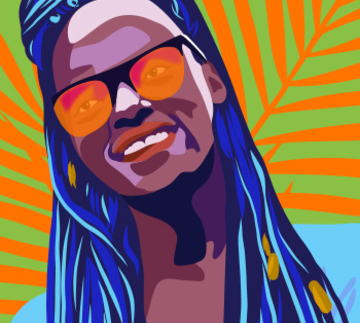
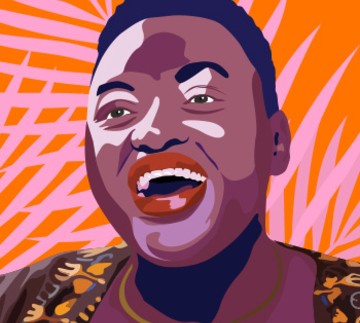
Many young people across Africa were born with HIV just like Asiimwe. Around two thirds of HIV-positive adolescents have been living with the virus since birth, having acquired it through mother-to-child transmission. Many HIV-positive youths have been on treatment since birth but only truly understand their status when they reach adolescence.
Many experience unique challenges as they transition to adulthood. It can feel scary and cause concern over what other people may think - this should not be the case. Stigma prevents many young people from being able to speak about it and gain support. See how you can be an ally and lead in ending the stigma below.
Youth-friendly services could provide a life-changing path for young people born with HIV by giving tailored support. We must create communities that do not discriminate but instead support and empower young people to not feel scared to talk and seek support
- Adolescent girls, in our region, are at a higher risk of contracting HIV due to the increased risk of being victims of sexual violence, pressure to have unprotected sex, child marriage, and abusive marriages.
- Gender discrimination, gender-based violence, and taboos about sexuality have an impact on young girls being able to prevent contracting HIV, negotiating safer sex, and accessing HIV or sexual and reproductive health services.
- We must demand for more youth-friendly services to ensure that women and girls get the support, protection, and treatment that they need.
- Youth-friendly services would also be a great platform to start important conversations with young men to educate them on these issues as a method of prevention against gender based violence and abuse.
For more information please visit: https://www.unaids.org/sites/default/files/media_asset/2019_women-and-hiv_en.pdf
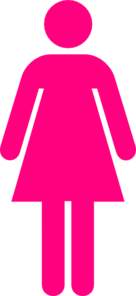
In Sub-Saharan Africa, 3 in 5 new HIV infections among 15-19 year olds were girls. (2018)
Adolescents' health literacy - make sure adolescents are armed with the knowledge about their own health and where and when to get health support.
Community support - health facilities that encourage involvement of parents, guardians, religious leaders and more to understand the value and importance of youth-friendly services. Without the support of the community adolescent programmes cannot be successful.
Appropriate packaging of services - making sure that information and services such as counselling, testing, and treatment are accessible and appropriate.
Providers' competencies - ensuring that healthcare providers can administer the best possible care to adolescents with no judgement, no discrimination and respect.
Facility characteristics - a health facility that is welcoming, clean, fully equipt and has convenient opening hours.
Equality and non-discrimination - a service for all no matter what a young person’s wealth, marital status, sex, age, education level, ethnic origin, or sexual orientation.
Data and quality improvement - a facility that collects and analyses data to continuously improve care.
Adolescents' participation - adolescents being at the core of services by participating in the planning and monitoring of their own care.
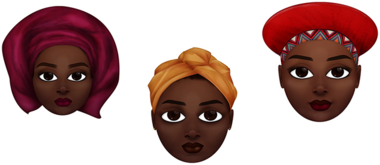
Young people across Africa are the most likely to not have access to the right information or HIV care they need and this is why we need more youth-friendly services.
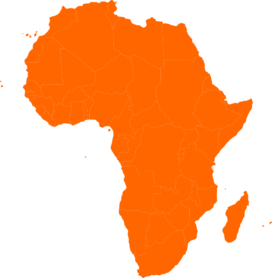
What are youth-friendly services?
The World Health Organization has developed 8 global standards that we should strive for across Africa for quality healthcare services for adolescents.
Read here for more information about youth-friendly services:
https://apps.who.int/iris/bitstream/handle/10665/183935/9789241549332_vol1_eng.pdf
https://www.unaids.org/sites/default/files/media_asset/2019-global-AIDS-update_en.pdf
View more youth champions’ stories below.
Africa needs adolescent-friendly policies
To access HIV services, many countries legally require parental consent for adolescents, which has become a barrier. In 14 countries in the WHO African Region, the age for accessing HIV testing without parental consent is 18 years old.
WHO recommends that governments revisit their age-of-consent policies “in light of adolescents’ rights to make choices about their own health and well-being”.
GET #TheTeaOnHIV
Lack of vital information about sexual health is harming adolescents and young people. This places them at higher risk of contracting HIV and other sexually transmitted infections and, at the same time, perpetuates stigma and keeps them from opening up to someone for the emotional support they desperately need at this age.
Sexual health education and understanding consent are both crucial for young people to protect themselves and why we must demand more youth friendly services.
How to be an ally!
Challenge discrimination and stigma - encourage equality and inclusion!
- Many across Africa still lack basic knowledge about HIV, such as how the virus is contracted. Misconceptions drive discrimination so if you witness discriminatory or judgmental behaviour, inform people with HIV facts.
- Lead by example and be that supportive friend or family member that you would seek in a time of need. Initiating conversations is the start of breaking barriers that prevent young people from getting support. Being open and honest helps to end stigma.
Create safe spaces for learning
- Be an advocate for more open and honest conversations. Educate yourself on HIV and encourage open conversations about it. This will encourage more people to get tested, take the right precautions, and seek the right treatment.
Demand youth-friendly services
- Speak to members in your community about the 8 global standards that make a youth-friendly services. It takes allies like you to engage communities for long-term success.
- More youth-friendly services would be a huadicating HIV from the continent of Africa.
FACTS
How do you contract HIV?
YOU CAN’T become infected by kissing, hugging, shaking hands or sharing personal objects, food or water with others. HIV can ONLY be transmitted through the transfer of pre-cum, semen, vaginal fluids, rectal fluids, blood and breastmilk. Another fun fact is that mosquito bites DO NOT transmit HIV!
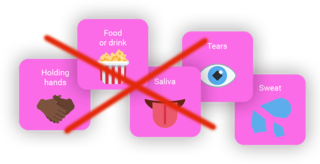
What is the difference between HIV and AIDS?
AIDS (Acquired Immunodeficiency Syndrome) is the most advanced stage of HIV infection. AIDS is a group of symptoms and illnesses that are caused by HIV Although there is no cure for HIV, treatment exists for people to live long and healthy lives.
STATS
Adolescents by the numbers
In 2018, nearly 1.5 million (89%) of the 1.6 million adolescents living with HIV globally live in sub-Saharan Africa. Two thirds (70%) of them acquired the virus through mother-to-child transmission. In addition, 157, 000 adolescents in sub-Saharan Africa became infected in 2018 – 82% of them girls and young women.1
While adults in Africa are increasingly dying of other causes, AIDS remains a leading cause of death among adolescents in most countries hardest hit by the epidemic.2 The number of adolescents dying due to AIDS tripled between 2000 and 2015.3
Although there has been recent progress in adolescent AIDS-related deaths, the decline is considerably slower than for adults, indicating that health services are failing to provide adolescents with appropriate quality care.
1 See www.aidsinfoonline.org/gam/libraries/aspx/Home.aspx (accessed 18 Nov. 2019).
2 See www.scidev.net/sub-saharan-africa/disease/news/adolescent-health-concerns-attention.html (accessed 13 Nov. 2019).
3 See www.unicef.org/media/media_86384.html (accessed 13 Nov. 2019).
Imagine this...
YOUTH CHAMPIONS LEADING THE WAY
Many young people across Africa discover that they are HIV positive at a young age and although there have been many advancements in treatment for HIV there is still a lot of stigma associated with it and still many areas across Africa that lack needed resources and support.
HIV doesn’t need to be something to be afraid of, it’s preventable and with the right treatment you can live a long, normal and healthy life. Our youth champions are excellent examples of what young people are capable of and highlight a serious need for more open conversations and more youth-friendly and youth-led services in our region.
JOY OBOYI
19, Abuja, Nigeria
“People say to me, ‘You’re the leader of tomorrow.’ But we’re the leaders of today because if all aspects of young persons are not being touched, believe me, more harm is going to come in the future.”
ASIIMWE HAJARAH
21, Kampala, Uganda
“My advice to young people is to be selfish about your life – it’s your life, your responsibility. No one will be swallowing your ARVs for you.”
DOREEN MORAA
27, Nairobi Kenya
“I am HIV-positive. I am not sick. I am not sad. I am not dying. I am just a fabulous host to a tiny virus."
KIMUTAI KEMBOI
28, Nairobi, Kenya
"Dear ARV, It is exactly three years since we met. The journey has been amazing, smoother than I expected. Being with you has been positive all through. You have suppressed my guest, HIV, and given me strength to manage it.”
VIMBAI JAZI
21, Morondera, Zimbabwe
“My strength is in my story. I was always this bold, it just took a matter of time for me to see that. Zvandiri brought this out of me. I’m confident, I’m strong.”
PATRICK
FOUDA
22, Yaoundé, Cameroon
“I had no one to talk to about my status, until I found others like me. Now it’s my turn to help others: I co-founded an association for HIV-positive youth.”
BE A CHAMPION!
Ending HIV across Africa is a big task, but not an impossible one. We can start the conversation, support each other, and create change.
HOW YOU CAN BE A CHAMPION...
DOWNLOADS
Take a look at our downloads here.
THE YOUNG PERSON
Imagine your name is Mary. You’re 16 and live with your father and older sister. You’ve always been made to take medication every day but have often skipped it or thrown them away.
Your mother passed away when you were three years old and recently you started wondering why you have to take these pills. You find out that it is for HIV. You now understand that taking this medication allows you to live a happy, healthy and normal life. You hadn’t been feeling well for a while and now know this was due to you not taking your medication correctly.
Stories like Mary’s are a reality for young Africans across our region. 70% of adolescents living with HIV in Africa having contracted it from their parents. Many young people don’t have someone they feel they can talk to and many do not know enough about life with HIV. Did you know that with the right treatment you can live a long , happy and healthy life? And that there are many misconceptions about how you can contract HIV? Facts like these are life changing and we need youth friendly services to share these facts and create more peer support around the topic of HIV. The more we know about HIV, the less scary it seems and the more we can work together to support those who have it and prevent it from being transmitted.
THE ALLY
Imagine that you notice your friend has been acting strange and not feeling very well but says they’re fine when you ask.
One day they open up and share that they have HIV and haven’t been taking the medication they were given as they’re in shock and denial. You know quite a lot about HIV due to a family member living with the virus and see that this is a great opportunity to have an open and honest conversation about it. You explain why the medication is so important, that HIV is nothing to be ashamed of and give them a big hug to reassure them. Your friend is so grateful for your support and slowly grows their confidence back.
Whether you are directly affected by HIV or not this is an incredible opportunity to lead in open and honest conversations about the virus.
Having HIV or wanting to learn more about it is nothing to be scared or embarrassed about. Having more conversations about HIV is important and in some cases can save lives. Learning more about the virus will allow you to empower young people around you and end the stigma. Let’s break the silence on HIV and spread the word.
THE STUDENT
Imagine that you’re a young university student. You’ve met someone who is much older than you and is well known for having had many partners. Your older cousin tells you to be careful and that if you have sex to be safe and use a condom. You have never been sexually active before but feel pressured by them. A few days after having sex without a condom you find out that they are HIV positive. You find a reliable source online that explains that you can take Post-exposure prophylaxis (PEP) within 72 hours of exposure to HIV in order to prevent infection. You tell your cousin and they are very supportive and encourage you to always use condoms in the future, to speak to someone if you feel pressured into something and more importantly that you should never feel embarrassed about discussing HIV.
Adolescent girls, in our region, are at a higher risk of contracting HIV due to the increased risk of being victims of sexual violence, pressure to have unprotected sex, child marriage, and abusive marriages. Stories like this happen everyday and it highlights the need for more open and honest conversations about HIV and prevention. By being open around the topic, young people will have more knowledge about the virus, can encourage each other to get tested, share prevention tips and ensure that they get the right treatment if necessary. Everyone should be able to talk safely and honestly about HIV
JOY OBOYI, 19, Abuja, Nigeria
She hopes to enrol in university to study peace and conflict resolution and one day wants to have her own NGO dedicated to young people.
ASIIMWE HAJARAH, 21, Kampala, Uganda
She was first runner-up for the Western Region in the Y+ beauty pageant for HIV-positive youth, 2018–2019.
DOREEN MORAA, 27, Nairobi, Kenya
Works as a customer care executive and has a YouTube page titled “I am a beautiful story” where she shares her experiences as a young person living positively with HIV.
KIMUTAI KEMBOI, 28, Nairobi, Kenya
A fourth-year computer science student at a university in Nairobi who describes himself as an HIV disclosure ambassador.
VIMBAI JAZI, 21, Marondera, Zimbabwe
She works full-time as a Zvandiri peer counsellor and dreams of opening a foundation within 10 years to help people living with HIV and to offer a place for orphans – a home to support each other as a family, because without support, you cannot go anywhere.
PATRICK FOUDA, 22, Yaoundé, Cameroon
He is pursuing a university degree in political science and philosophy and recently became a father.



